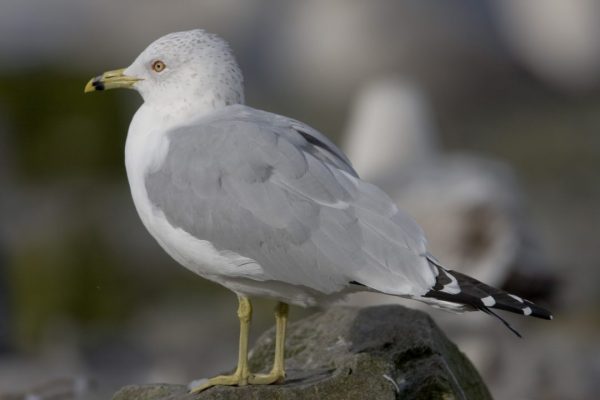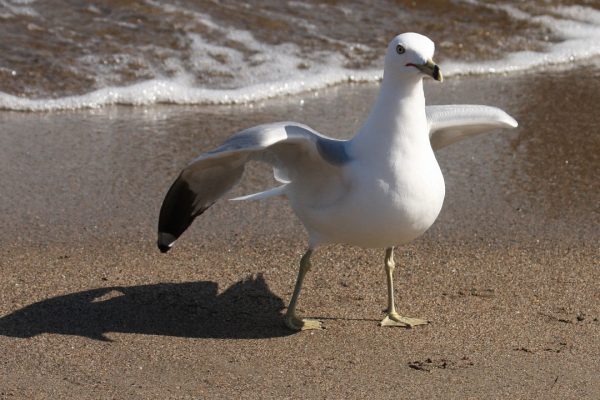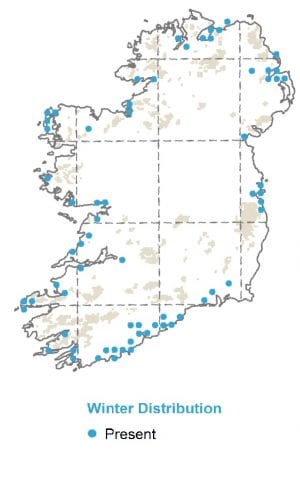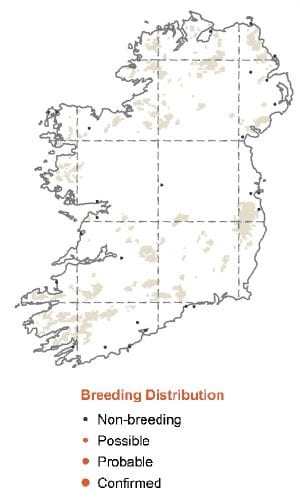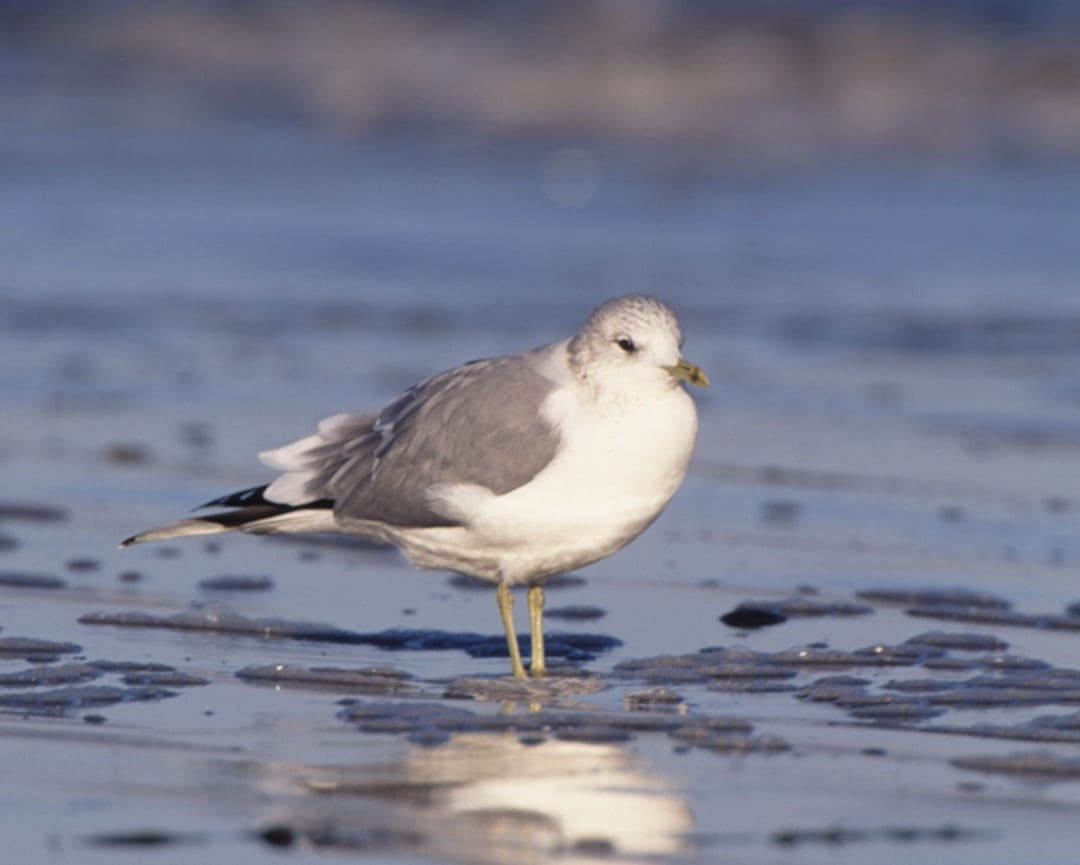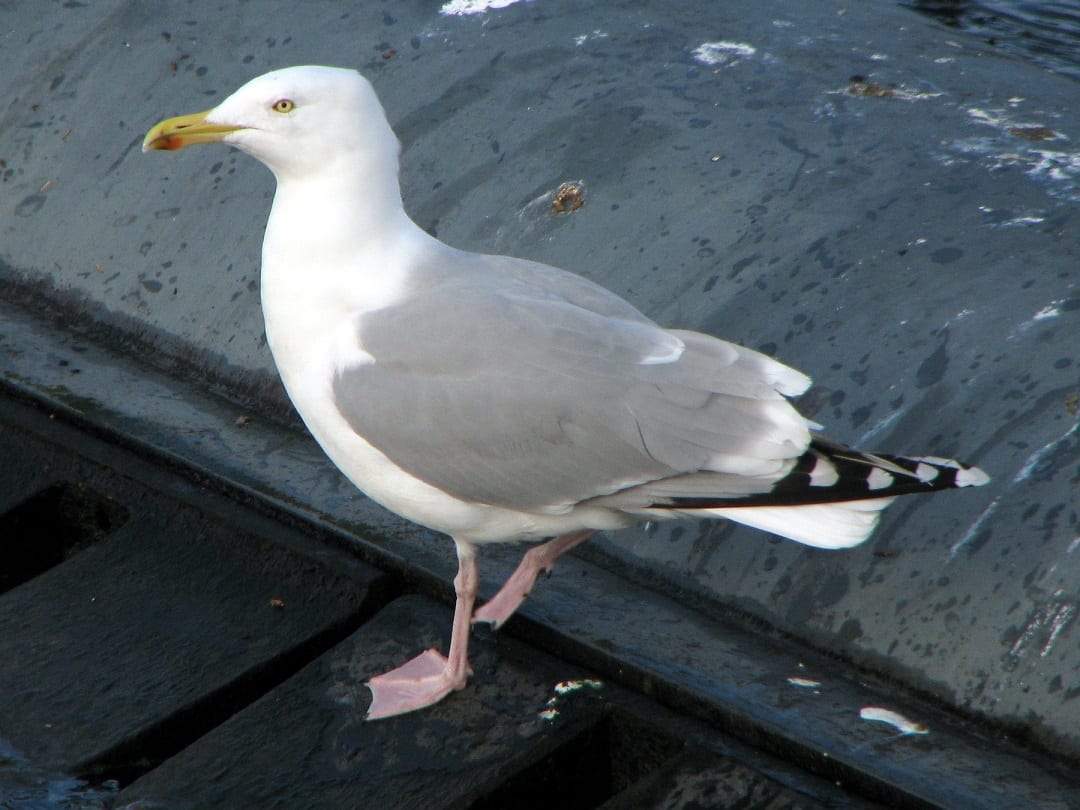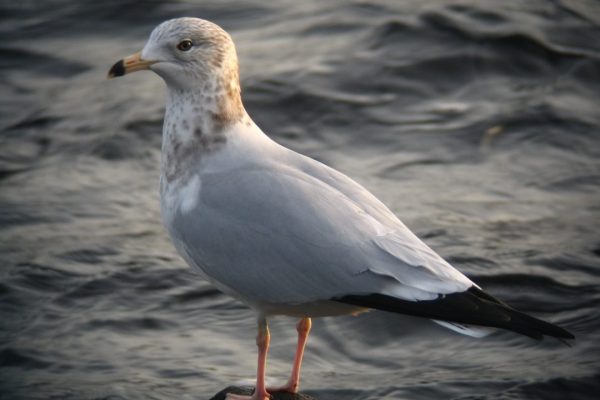
Ring-billed Gull
| Irish Name: | Faoileán bandghobach |
| Scientific name: | Ring-billed Gull |
| Bird Family: | Gulls |
green
Conservation status
Conservation status
Status
Rare winter visitor to all Irish coasts from September to April.
Identification
Slightly larger than Common Gull in size and very similar to that species. Adult summer Ring-billed Gulls are most easily identified by the thick yellow band with broad black band near the tip. In comparison to Common Gull, has a pale iris and slightly paler grey upperparts. Adult winter birds are similar to summer-plumaged birds, but have a variably streaked head. First winter Ring-billed Gulls have a densely streaked head, as well as barred underparts. The wing also has extensive brown and black markings, while the tail has a broad black bar at the tip. The legs and bill are pale pink, with the latter having an obvious black tip. Second winter Ring-billed Gulls appear similar to adult winter birds, but retain some markings on the tail and tend to have more extensive markings on the wing. The bill and legs are a dull greenish colour.
Voice
Usually silent when seen in Ireland. Otherwise very similar to Common Gull.
Diet
Omnivorous like the Common Gull, feeding on a wide variety of prey (crustaceans, fish, and starfish) and may also scavenge at rubbish tips.
Breeding
Has bred in Ireland. This involved a Ring-billed Gull successfully pairing with a Common Gull and producing hybrid young. The normal breeding range of Ring-billed Gull is in North America.
Wintering
The normal wintering range lies from the southern United States to Panama. A rare winter visitor to Ireland with around 10 to 15 individuals noted annually.

